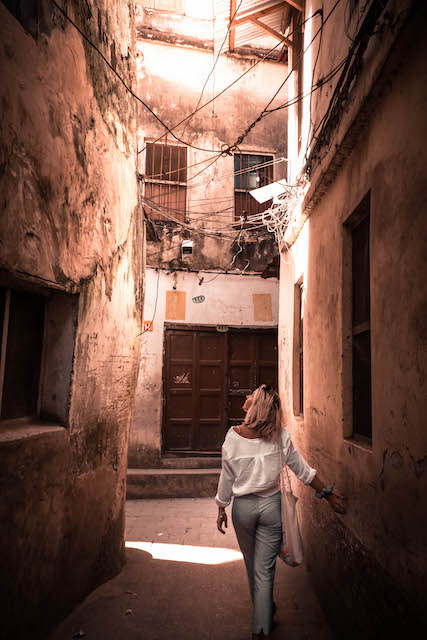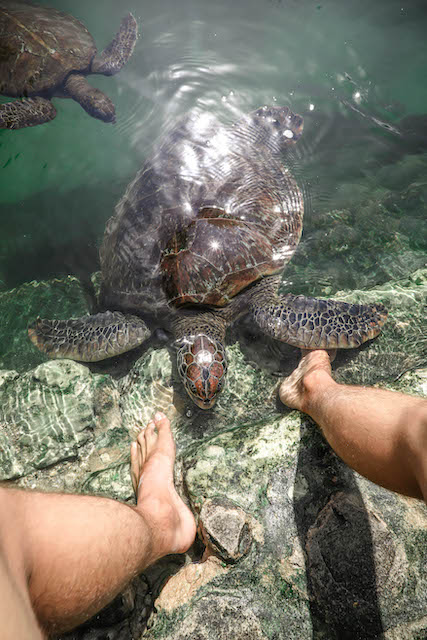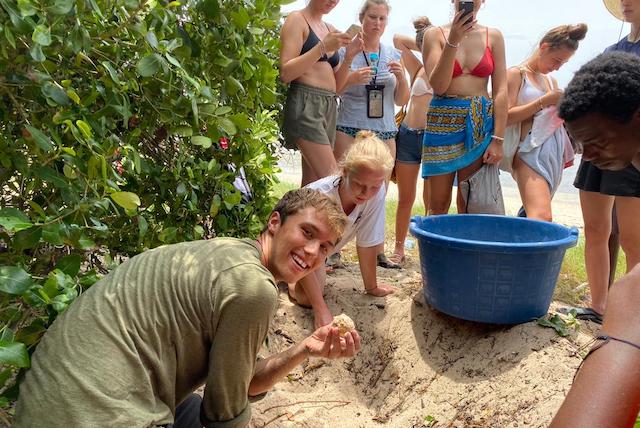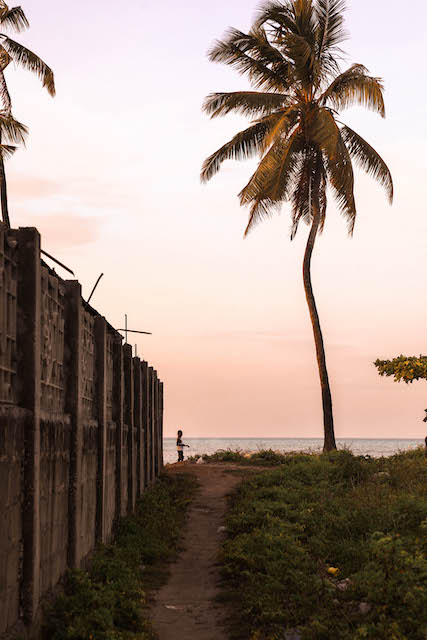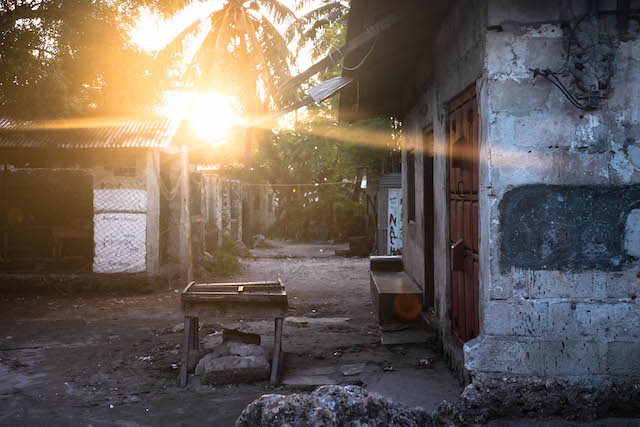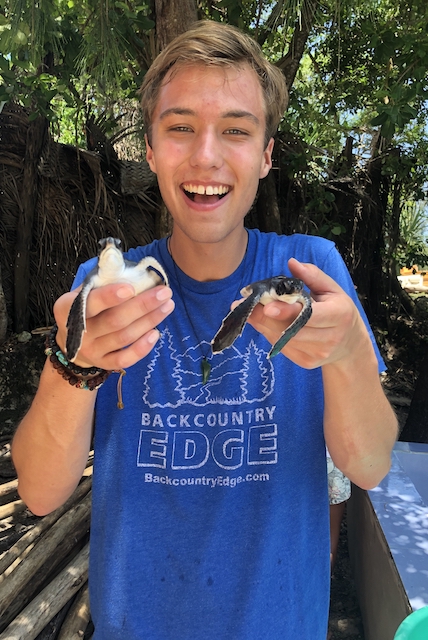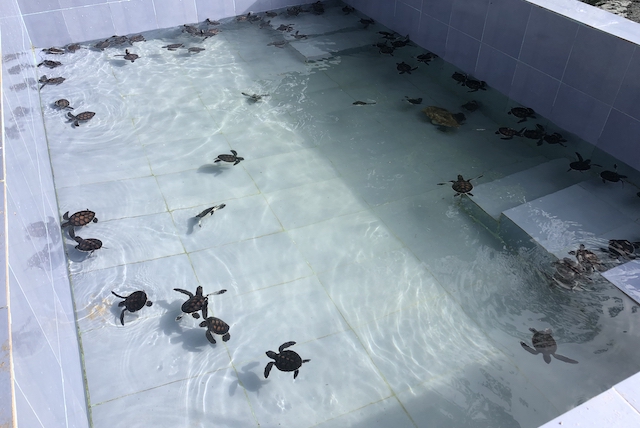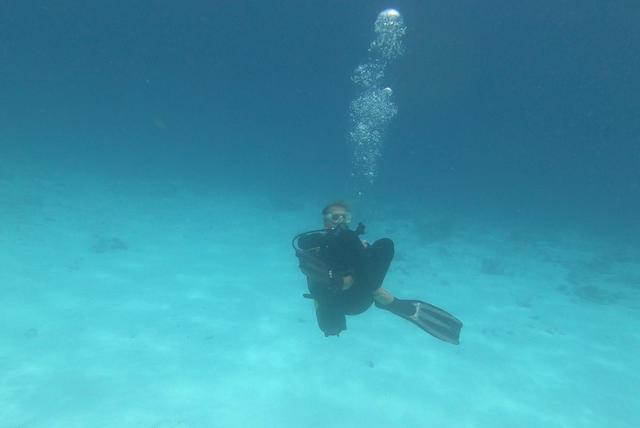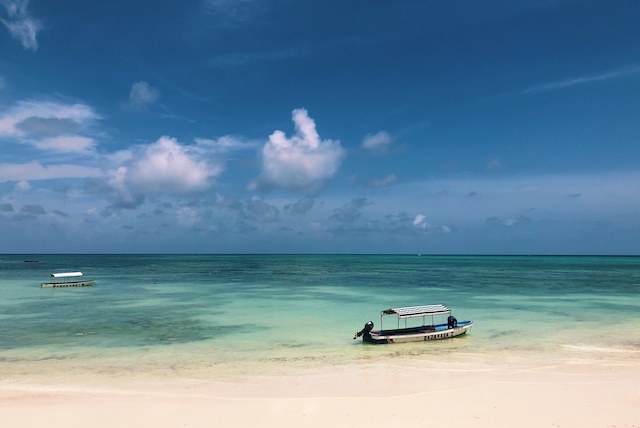
Written By Hunter, Latitudes Year ’20 Zanzibar
Jambo from… Texas!
That’s right. I am currently spending the remainder of my Latitudes semester at home in the luxuries of air conditioning, refrigerated food, and a bed that I actually fit in; but let me tell you, it wasn’t always this way! My early return home due to the coronavirus outbreak was totally unexpected, but it has given me a lot of time to reflect on and appreciate the past two months I spent in East Africa.
I spent my Latitudes semester on the small island of Zanzibar off the coast of Tanzania volunteering at a marine turtle aquarium and conservation project. Based out of the village of Nungwi (“noon-gwee”), the Mnarani Marine Turtles Conservation Pond aims to rehabilitate injured sea turtles before releasing them on an annual release day–February 20th–back into the ocean, all the while educating tourists and local communities of the hazardous effects mindless fishing practices and plastic pollution have on marine health. The aquarium is completely outdoors and is formed around a natural lagoon that houses the adult sea turtles. The most common species of turtle in the aquarium are the green sea turtles, who eat mostly fish in their adolescent years and then later become strict vegetarians when they reach adulthood. Other species of turtles in the aquarium include the Hawksbill turtle, the Olive Ridley turtle, and a Loggerhead sea turtle; this is a super diverse array of sea turtles considering that four of the seven major species of sea turtles in the world can all be found in one location!
All of the turtles at the aquarium come into the care of rehabilitation in one of two ways: (1) Fishermen in the surrounding areas often accidentally catch sea turtles in their daily fishing runs, and if they end up accidentally injuring these turtles, they are obligated to deliver these turtles to the aquarium to begin a rehabilitation period. (2) Staff and volunteers at the aquarium collect eggs during the turtle season at a well-known turtle nesting site to protect the hatchlings from illegal poaching that occurs quite often in Zanzibar; after the eggs are collected, they are taken to the aquarium hatchery where they sit for about two months until they are ready to hatch. During my placement at the aquarium, I was fortunate enough to take essentially what looked like a pirate ship out to a nearby island and collect 93 eggs in a single turtle nest to be protected from poaching and illegal raising of baby turtles. A single turtle can sell for 100,000-200,00 TSH on the black market (roughly $50-$100). So not only does collecting turtle eggs protect the animals from mass killings, but it also aims to choke the flow of currency in illegal economies.
Additionally, the turtles–and all other marine life in the area–suffer greatly from high levels of oceanic pollution. Zanzibar as an island–though with some smaller initiatives present–has no successful waste management system. So, as part of the aim behind the aquarium, the conservation project at Mnarani also aims to educate tourists and locals about taka taka (Swahili for “litter”) and the importance of reducing your impact on the environment by staying mindful of your usage of single-use products. Also at the aquarium, there is an upcycling project that makes “eco-bricks” out of plastic bottles, “pots” for plants out of plastic debris, and buoys for fishing nets out of plastic bottles as well.
At the aquarium, my job was mostly centered around the turtles and less around the recycling project. Every day, I would change the water in the tanks that housed the baby turtles with clean saltwater from the lagoon. Myself and the other volunteers would also go out into the ocean at low-tide to collect seaweed for the adult sea turtles in the lagoon to munch on, and on a weekly basis we would measure a sample of the baby turtles to make sure they are growing at healthy rates. We also conducted beach cleanups along the nearby beaches about twice a week; the most common materials we collected included fishing nets, plastic bottles and caps, shoes, ropes, plastic medicine bottles, clothing, and many small micro-plastics.
When I wasn’t at the aquarium, I would make frequent visits to Stone Town–a historic city on the west coast of the island famous for its spice markets (this was also where Freddie Mercury was born). In Nungwi, I had the incredible privilege to swim in the warm, clear waters off Nungwi beach everyday. I also had the incredible opportunity to put my diving license I earned from last semester in Australia to use. From African music festivals in Stone Town to exploring the quiet underwater world off Mnemba Island, I really feel like I lived it all during the two months I had the privilege to live in Zanzibar. I had some of the best moments of my life on this island; I also had some of the most trying, heart-wrenching experiences of my life, as well. But I believe that’s what makes a good story–the conflict, the pain, and then rising out of it knowing it has changed you in some way. That was Zanzibar for me. I sincerely feel like I have grown out of this experience a better traveler, environmental advocate, and person from all the emotional hardships and triumphs that unfolded on my path while I was in Zanzibar.
Going forward, I patiently await the day I return to Africa. Before my trip got cut a month short due to the virus outbreak, my plans were to continue my Latitudes semester in Zimbabwe while volunteering at an elephant and rhino conservancy. However, I realized in the difficult decision between returning home or continuing my travels in Africa what really matters. Though it breaks my heart to leave people I have grown so close to in Zanzibar, I am also happy to be back home with my family where it is a lot easier to spread my love to those that have supported me throughout the entire gap year process. I am immensely grateful for the people I have met in Zanzibar as well as the life-changing experiences that came with them. I will never be able to articulate my full gratitude for these precious moments.
I hope everyone is staying safe and staying healthy during these times of change. My heart is out there with you, with the communities of East Africa, and with the turtles. More love, always. Amani na upendo!
